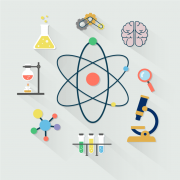Are People Innately Good or Bad?
Are People Innately Good or Bad? Few elements of the Bible’s message regarding human nature and our standing with God have been more misunderstood or intentionally distorted than the concept of sin. As the old line goes, “There’s good news, and there’s bad news.” In the case of the gospel, the order is reversed: the bad news comes before the good news. In fact, the word gospel even means “good news.” And the good news is so good that it not only neutralizes the bad, but utterly and completely overwhelms it. But to get there, we must first face some unpleasant truths about ourselves.
When one considers the revealed truth of both the Hebrew Scriptures and the New Testament, one is confronted by the diagnosis that humanity is suffering from a deadly disease, the symptoms of which are greed, cruelty, injustice, deceit, and a host of others evils. According to the Bible, the creation and humanity that God originally called “good” has been corrupted, just as a healthy body can be infected with a disease. In our case, that infectious disease is spiritual, although it carries physical consequences as well. It is called sin.
What is sin? It is disobedience to God that results in estrangement from him. Sin manifests itself in immoral actions toward God and fellow man, resulting in a cascade of disordered relations with nature, one another, and even with our own selves. Sadly, even as some diseases are genetically encoded to be passed on from generation to generation, the condition of sin is likewise hereditary.
Are people born sinners? The answer is that we have inherited a disordered predisposition to sin, and our sins are the result of that predisposition. Sin manifestations begin to pop out like measles from virtually the moment we discover the ability to say “yes” and “no.” As any parent knows, you do not need to teach a child to be willful, obstinate, and selfish. And although as we mature, we often say yes to the right things and no to the wrong things, the opposite is all too often the case.
Although we must be cured, we are unable to cure ourselves. Moreover, there is no vaccine to stave off an infection rate of 100 percent. Our own resources are insufficient. That is the bad news.
Now comes the good news. While the Bible gives the diagnosis of our dire condition, it also prescribes the cure. In fact, from beginning to end, the Bible describes the steps God has taken toward us to heal the rift created by the presence of sin. God has never lost sight of the goodness of his creation or humanity, marred as those things may be.
Although the gospel may be described in many ways, its essence may be expressed in the simple declaration, “For God so loved the world, that He gave His only Son, that whoever believes in him should not perish but have eternal life. For God did not send His Son into the world to condemn the world, but in order that the world might be saved through him (John 3:16–17).
Although our sin has resulted in hardship, woe, and death, God’s love has stepped across the abyss of estrangement with the good news that our cure is at hand. If we receive that gift of God’s love through faith in Jesus the Messiah, it will immediately begin to take effect not only to remove the symptoms of our disease, but, in time, the disease itself when we see our Messiah face-to-face (Revelation 21:4).



 Credit: Freepik
Credit: Freepik


